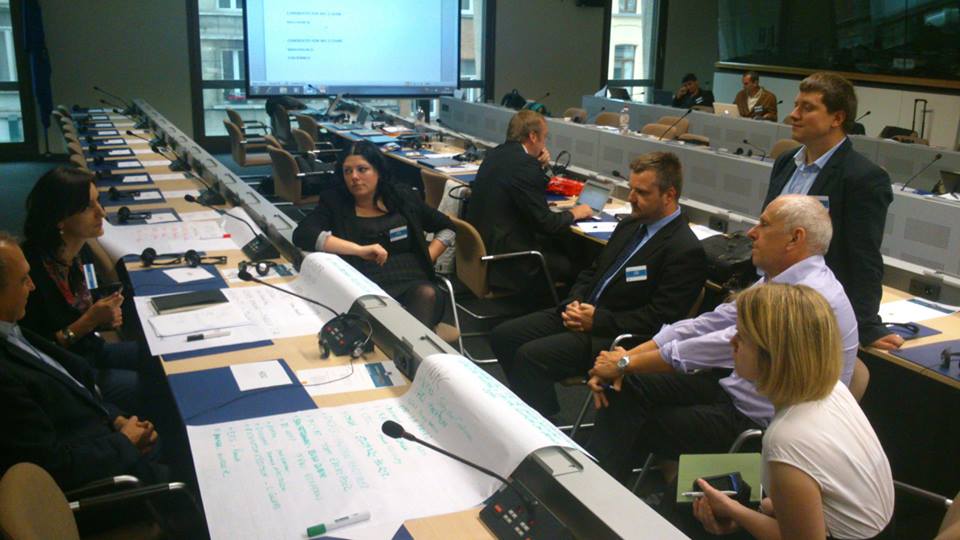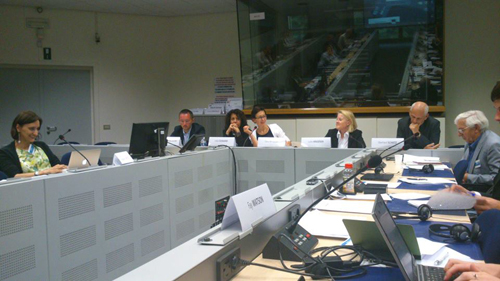The EU’s expert group on drugs has discussed how civil society can be involved in a more meaningful way in the formulation of drug policy
The Civil Society Forum on Drugs is an expert group of the European Commission. It serves as a platform for dialogue between the EC and civil society. In 2013, 40 NGOs (including our own Drug Policy Program) were selected to be members of the Forum for a two-year period. A rich diversity of groups are represented at the Forum, covering most regions, professional fields and ideological approaches. Some NGOs focus on harm reduction, others on primary prevention. There are representatives of drug user communities and those who self-identify as recovered addicts. There are members who support drug prohibition, while others speak out for drug regulation. This diversity gives the Forum an advantage, because it enables it to express the complexity of the drug phenomenon. However, when it comes to decisions, the same diversity makes it extremely difficult to reach a consensus within the group on many issues. Even so, the Forum last year adopted a consensus document with a number of key recommendations. Those recommendations were presented to the government delegates at the Horizontal Drug Group (HDG).
We hoped that our recommendations would contribute to the development of the new Action Plan on Drugs (2013-16), which translates the longer-term aims of the EU Drug Strategy (2013-20) into short-term action. Unfortunately most of the Forum’s recommendations have not been incorporated into the final text. This, at any rate, was the general feeling among those civil society representatives who attended the annual meeting of the Forum in Brussels this week.
Many members of the expert group (inlcuding the outgoing chair, Eberhard Schatz) expressed their concern about the document’s failure to adequately cover, and give clear indicators in regard to, harm reduction inteventions. Harm reduction objectives are subordinated to treatment and recovery objectives. This is a step back from the political commitment of the previous Action Plan, which had more specific objectives and indicators to ensure that harm reduction programs are scaled up. For instance, the previous Action Plan had specific objectives to scale up opiate substitution treatment in prisons – this is missing from the current plan.
This is disturbing for many reasons. First, as we reported earlier (read our article!), external evaluation of the previous drug strategy concluded that there is only one policy area which can show clear indications of success: harm reduction. If the EU claims to base drug policies on evidence, why is harm reduction neglected? Second, we are living in a time of financial austerity, where evidence-based, life-saving services are no longer fighting to be expanded, but struggling for sheer survival. Such programs are among the first victims of budget cuts, while the budget devoted to law-enforcement interventions of uncertain effectiveness continues to grow. Can we afford to spend a lot of money on unproven supply-reduction interventions, in the middle of a financial crisis? Third, and maybe most importantly, the impacts of the financial crisis are now very visible within Eastern member states of the EU: HIV epidemics have broken out among injecting drug users in two countries where prevalence had previously been low – Greece and Romania. Hepatitis C prevalence remains high among IDUs, and overdoses are still the major cause of death among this group. There is a growing demand for harm reduction interventions, due to an increase in injecting stimulant use, but access to such programs is very limited. We need an EU-wide political commitment and financial investment to tackle drug- and drug-policy-related harms, inlcuding needle and syringe programs, supervised injecting facilities, opiate substitution and overdose prevention training with Naloxone distribution.

Meeting of the old and new Core Group of the Civil Society Forum on Drugs
The Forum elected five people to the new core group this week, with Raminta Stuikyte (EATG) as chair and Fay Watson (European Cities Against Drugs) as co-chair. There are three other members of the core group who chair the three working groups of the Forum: on the quality standards for demand reduction (Matej Kosir, Institute for Research and Development), on UNGASS 2016 (Maria Phelan, European Harm Reduction Network) and on co-ordination with the Horizontal Drug Group of EU member states (myself).
We are in a fortunate position, in that there are very open-minded people at the Drug Unit of the European Commission, who support the involvement of civil society. On Tuesday, we had our first joint meeting with the government delegates to the HDG, where we discussed the Action Plan and possible future co-operation. The representatives of the outgoing Irish EU presidency assured us that civil society recommendations have been taken into consideration during the drafting of the new Action Plan; however, as they pointed out, the final text was a compromise and nobody was entirely happy with it. Now it is up to the new Lithuanian (and then Greek) EU presidency, to help us to give a voice to civil society in the implementation of the Action Plan.
Posted by Peter Sarosi





